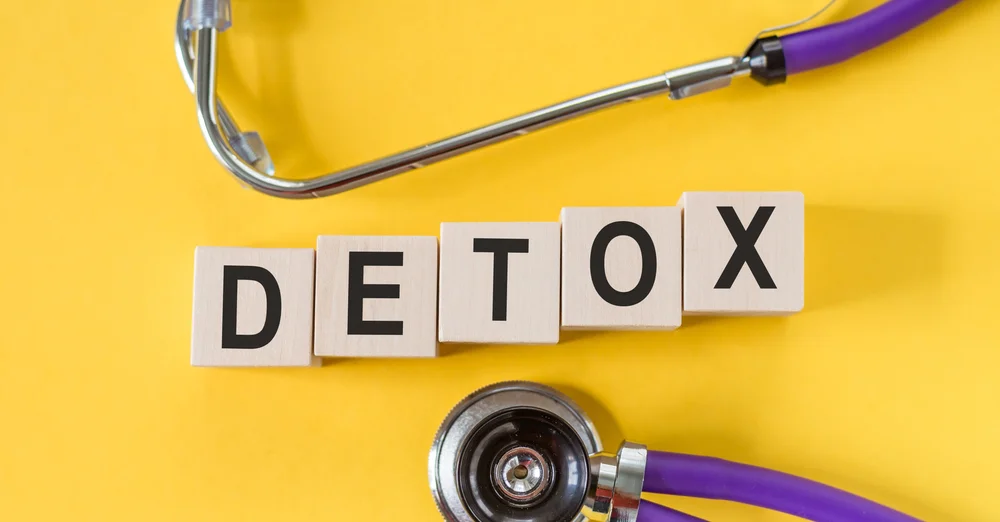Key Takeaways
- Medical detox programs provide a safe and monitored environment for withdrawal.
- There are various benefits, including reduced risk of complications and professional support.
- Understanding the process and science behind medical detox can empower those seeking help.
Table of Contents
- What Is Medical Detox?
- Benefits of Medical Detox
- How Medical Detox Works
- Why Professional Support is Crucial
- Comparison of Medical vs. Non-Medical Detox
- Common Myths About Medical Detox
- Real-Life Success Stories
- How to Choose the Right Detox Program
What Is Medical Detox?
Medical detox is a supervised approach to managing withdrawal symptoms during the initial phase of getting clean from drugs or alcohol. It typically takes place in a healthcare setting under the care of medical professionals. The primary goal is to make the process safer and more comfortable for the individual. Whether you need Medical Detox in California or elsewhere, finding a reputable program is crucial. This phase is often the first and most critical step toward long-term recovery.
During medical detox, individuals are monitored 24/7 by healthcare professionals who can intervene if any complications arise. This is particularly important for those with severe addictions, as withdrawal symptoms can be unpredictable. Medical detox provides a controlled environment where emergency care is available if needed.
Benefits of Medical Detox
One of the most significant advantages of medical detox is the controlled environment. Patients receive constant monitoring, significantly reducing the risk of complications. Medications can also be administered to ease withdrawal symptoms. Moreover, medical detox can provide a solid foundation for ongoing treatment and recovery, giving patients a better chance at achieving long-term sobriety. The emotional and psychological support available during medical detox can also play a crucial role in tackling the root causes of addiction.
Medical detox offers professional guidance and reduces the risk of complications. Healthcare providers can tailor the detox process to meet individual needs, making it a more personalized experience. This customization can significantly enhance the effectiveness of the detox process.
How Medical Detox Works
The medical detox process generally involves three main steps: evaluation, stabilization, and transition to further treatment. During the evaluation phase, medical staff assess the patient’s physical and mental health. Stabilization involves managing symptoms through medications and other interventions. Finally, patients are prepared for the next steps in their treatment journey. This structured approach ensures that each phase is meticulously managed for optimal safety.
The evaluation phase is critical for identifying any co-existing medical or psychiatric conditions that may impact the detox process. Healthcare care providers can develop a customized by understanding the complete medical history plan. Stabilization is the phase where withdrawal symptoms are actively managed. Medications may be used to alleviate symptoms, making the process more comfortable. The final phase, transition, involves preparing the patient for ongoing treatment. This may include counseling, therapy, and other supportive measures to facilitate a smooth transition into a long-term recovery plan.
Why Professional Support is Crucial
Professional support during medical detox is invaluable. Healthcare providers manage physical symptoms and offer emotional and psychological support. This comprehensive care helps address the underlying issues that contribute to addiction, promoting a more sustainable recovery. Experts in medical care are trained to handle various challenges that may arise, providing a crucial safety net during this vulnerable time.
Emotional support from professionals can significantly improve a patient’s experience. Detoxing can be an emotionally turbulent time, and having a trained professional to talk to can provide much-needed reassurance. This support extends beyond just the physical aspects of detox, making the experience more holistic.
Comparison of Medical vs. Non-Medical Detox
While some people opt for non-medical detox, relying on home remedies and self-care, medical detox has notable advantages. Non-medical detox lacks medical supervision, which can lead to severe health risks. In contrast, medical detox provides a safer and more structured approach. According to Healthline, medical detox significantly improves the chances of a successful recovery by ensuring that patients are closely monitored and managed. Additionally, medical professionals can provide medications to ease withdrawal symptoms, something that is not possible with non-medical detox.
The structured environment of medical detox reduces the likelihood of relapse. Without constant monitoring, individuals may give in to cravings, especially during the intense early stages of withdrawal. Medical detox provides a controlled setting where such risks are minimized, offering a safer path to sobriety.
Common Myths About Medical Detox
Several myths surround medical detox, such as the belief that it’s only for severe cases or that it’s unaffordable. However, medical detox is suitable for anyone struggling with addiction, regardless of severity. Additionally, many insurance plans cover most or all costs, making it more accessible than people think. These myths can prevent individuals from seeking the help they need, so it’s crucial to dispel them and highlight the benefits of medical detox. It’s not just the severe addicts who benefit; even those with milder addiction issues can find medical detox to be incredibly helpful.
Another common myth is that detox is only the beginning and doesn’t contribute to long-term recovery. Medical detox is a crucial first step that sets the foundation for ongoing treatment. Without detox, the chances of long-term recovery significantly diminish.
Real-Life Success Stories
Real-life stories can be incredibly inspiring. For instance, numerous accounts of individuals who have turned their lives around through medical detox and subsequent treatments highlight the importance of professional help and how it can lead to long-term sobriety and a better quality of life. Personal testimonials and case studies demonstrate that recovery is possible and that medical detox can be a pivotal first step on that journey. Hearing about others’ successes can provide motivation and hope for those currently struggling with addiction.
Success stories often emphasize the importance of a comprehensive treatment plan that includes medical detox, therapy, and ongoing support. These elements work together to create a robust framework for long-term recovery. Individuals who have successfully navigated this journey often become advocates for medical detox, sharing their experiences to help others realize its benefits.
How to Choose the Right Detox Program
Selecting the right medical detox program can be challenging. Factors to consider include:
- The level of medical supervision
- The types of therapies offered
- The overall treatment philosophy
Consulting with healthcare professionals and reading reviews can also provide valuable insights. According to WebMD, finding a program that aligns with your needs increases the likelihood of successful recovery. Taking the time to research and choose the right program can make all the difference in your journey to recovery.
When choosing a detox program, consider the credentials of the medical staff and the range of services offered. Look for programs that provide a holistic approach, incorporating both medical and psychological support. This comprehensive care can significantly improve the effectiveness of the detox process.



